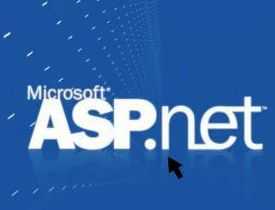Description
Course Name: Certificate in ASP.NET Programming
Course Id: CAP/Q1001.
Education Qualification: 12th Pass.
Duration: 90 Hrs.
How You will Get Diploma Certificate:
Step 1- Select your Course for Certification.
Step 2- Click on Enroll Now.
Step 3- Proceed to Enroll Now.
Step 4- Fill Your Billing Details and Proceed to Pay.
Step 5- You Will be Redirected to Payment Gateway, Pay Course and Exam Fee by Following Options.
Card(Debit/Credit), Wallet, Paytm, Net banking, UPI and Google pay.
Step 6- After Payment You will receive Study Material on your email id.
Step 7- After Completion of Course Study give Online Examination.
Step 8- After Online Examination you will get Diploma Certificate soft copy(Scan Copy) and Hard Copy(Original With Seal and Sign).
Step 9- After Certification you will receive Prospect Job Opportunities as per your Interest Area.
Online Examination Detail:
Duration- 60 minutes.
No. of Questions- 30. (Multiple Choice Questions).
Maximum Marks- 100, Passing Marks- 40%.
There is no negative marking in this module.
Benefits of Certification:
- Government Authorized Assessment Agency Certification.
- Certificate Valid for Lifetime.
- Lifetime Verification of Certificate.
- Free Job Assistance as per your Interest Area.
Syllabus
Certificate in Asp.net Programming
ASP.NET
VB.NET
ADVANCED ASP.NET
ASP.NET Technology using C#
VISUAL BASIC PROGRAMMING
Programming Skill Development using ‘C’ and ‘C ’
ASP.NET
ASP.NET: Introduction – .NET Framework – ASP Operating Systems – Servers – ASP Objects – ADO and ADO.NET objects – ASP Components – RDBMS and other data sources – Developing the Distributed online applications – Client Server or Tiered Applications, PROGRAMMING ASP.NET WITH VB.NET: VB.NET Programming Language Structures – Built in ASP.NET objects and interactivity – Using the Response Object – ASP Server Object, ASP.NET Configuration, Scope and State and ASP Application – ASP.NET Application – ASP.NET and State – The Application Object – ASP Sessions – The session Object, ASP.NET OBJECTS AND COMPONENTS : The Scripting Object Model – Active Server Components and Controls – More Active Server Components.
VB.NET
Constants, Data types and Variables: Defining & using constants- Passing literal value to a variable-Using variables and Expressions- Explicit Variable declaration, Building a user Interface: Changing the name of the form-Changing the appearance of a formDisplaying text on a forms title bar- Changing a forms background color-Adding a image to a forms background- Giving a form an icon- Showing and Hiding forms-Unloading forms, Advanced controls: Creating timers- Creating tabbed dialog boxes- Storing pictures in an image list- List view- Creating columns- Adding list items- adding nodes- Removing and cleaning all nodes, Building forms: Working with controls-Adding controls to a form-Manipulating controlsCreating a tab order- Layering controls-Creating top most windows- Creating transparent and Scrollable windows and MDI forms.
ADVANCED ASP.NET
Beginning with ASP.Net Application: Creating ASP>NET web application projects- Designing forms- Responding to user Interaction, Building a ASP.Net web services: Creating a web service-Creating an asp.net web service projects- accessing a web service, Securing ASP.Net applications: Implementing security at IIS- Securing a virtual directoryConfiguring web server log files- Authentication in ASP.Net: Types of AuthenticationImplementing forms Authentication, ADO.NET: Understanding the features of ADO.NET: Data commands- Data sets- Support for XML- ADO.NET Architecture- Data sets- .Net data provider, Creating a user control in ASP.Net- Converting a web form into a user control- Removing HTML tags- Renaming web form files- Changing page directories- Adding user control to a web form.
ASP.NET Technology using C#
Overview of ASP.NETframework, Understanding ASP.NET Controls, Applications, Web servers, installation of IIS, Web forms, web form controls-server controls, client controls, web forms & HTML, Adding controls to a webform, Buttons, TextBox, Labels, Checkbox, Radio Buttons, List Box, etc. Running a web Application, creating a multiform web project, Form Validation: Client side validation, server Side validation, Validation Controls: Required Field Comparison Range. Calendar control, Ad rotator Control, Internet Explorer Control, State management-Viewstate, Session state, Application state, Writing datasets to XML, Reading datasets with XML. Web services: Introduction, Remote method call using XML, SOAP, web services, description language, building & consuming a web service, Web Application deployment.
VISUAL BASIC PROGRAMMING
Introducing Visual Basic: Events and Event procedures – Object-related concepts – Program Development process – Program organization – VB Program Components- VB Environment – Opening, Saving, Running a project – Visual Basic Fundamentals, Branching and Looping – Visual Basic Control fundamentals, Menus & Dialog boxes – Procedures – Arrays: Characteristics – Declarations, MS Access: Introduction to Access 2000 – Introduction to Relational Databases – The Seven Main Access Database Objects. Editing Data in an Existing Database: Understanding Someone Else’s Database – Using the Datasheet View – Using an Existing Table – Using Existing Queries, Modifying an Existing Database: Modifying an Existing Table – Modifying and Using Existing Queries. Creating a Database Using Wizards.
Programming Skill Development using ‘C’ and ‘C ’
Character Set, Identifiers, Keywords, Variables, Character Strings, Typecasting, Constants, Operator and Expression, Operator Precedence and Associativity, Control Statements: If, If-Else, Multi-way decision, Compound Statements, loops: for, while do-while, break, switch, continue statement, Arrays, Strings, Functions: Introduction, Parameter Passing: call by value, call by reference, return values, recursion vs. iteration, scope extent, passing arrays and function to functions, Pointers: Introduction, address operator, pointer variables, pointer arithmetic, pointer to pointer, array of pointers. Structures: Operations, self-referential structure, array of structure, Introduction to traditional programming with C, Object Oriented Programming, Objectives of OOP, Procedural VS OOP, Concepts of Objects, Classes, Data Abstraction, Encapsulation, Inheritance, Polymorphism, Dynamic Binding and Message passing.

